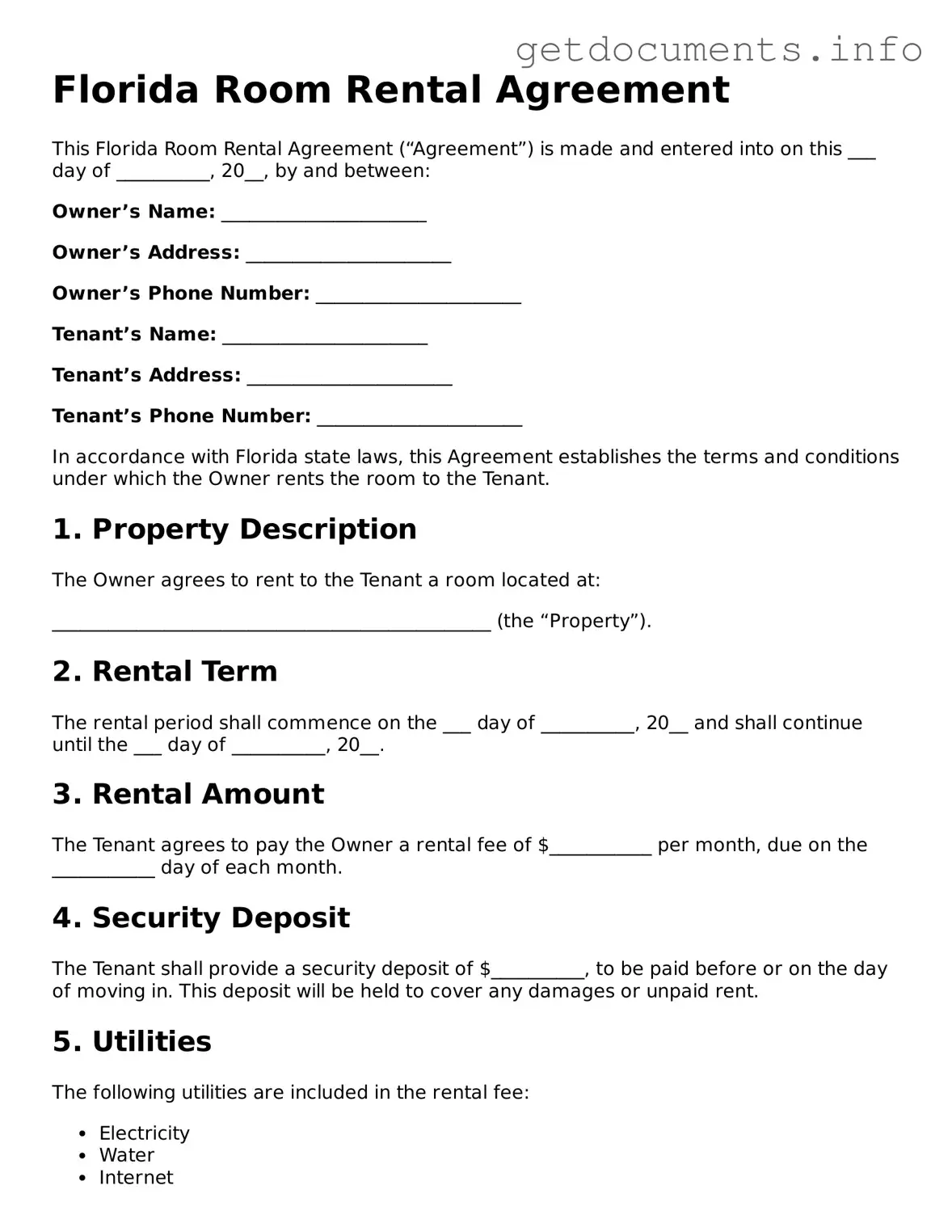Free Room Rental Agreement Template for Florida
The Florida Room Rental Agreement is a legal document that outlines the terms and conditions between a landlord and tenant for renting a room in Florida. This agreement helps protect the rights of both parties and ensures clarity regarding rent, duration, and responsibilities. Understanding this form is essential for a smooth rental experience, so be sure to fill it out by clicking the button below.
Access Room Rental Agreement Editor

Free Room Rental Agreement Template for Florida
Access Room Rental Agreement Editor
Got places to be? Complete the form fast
Fill out Room Rental Agreement online and avoid printing or scanning.
Access Room Rental Agreement Editor
or
⇩ PDF File
